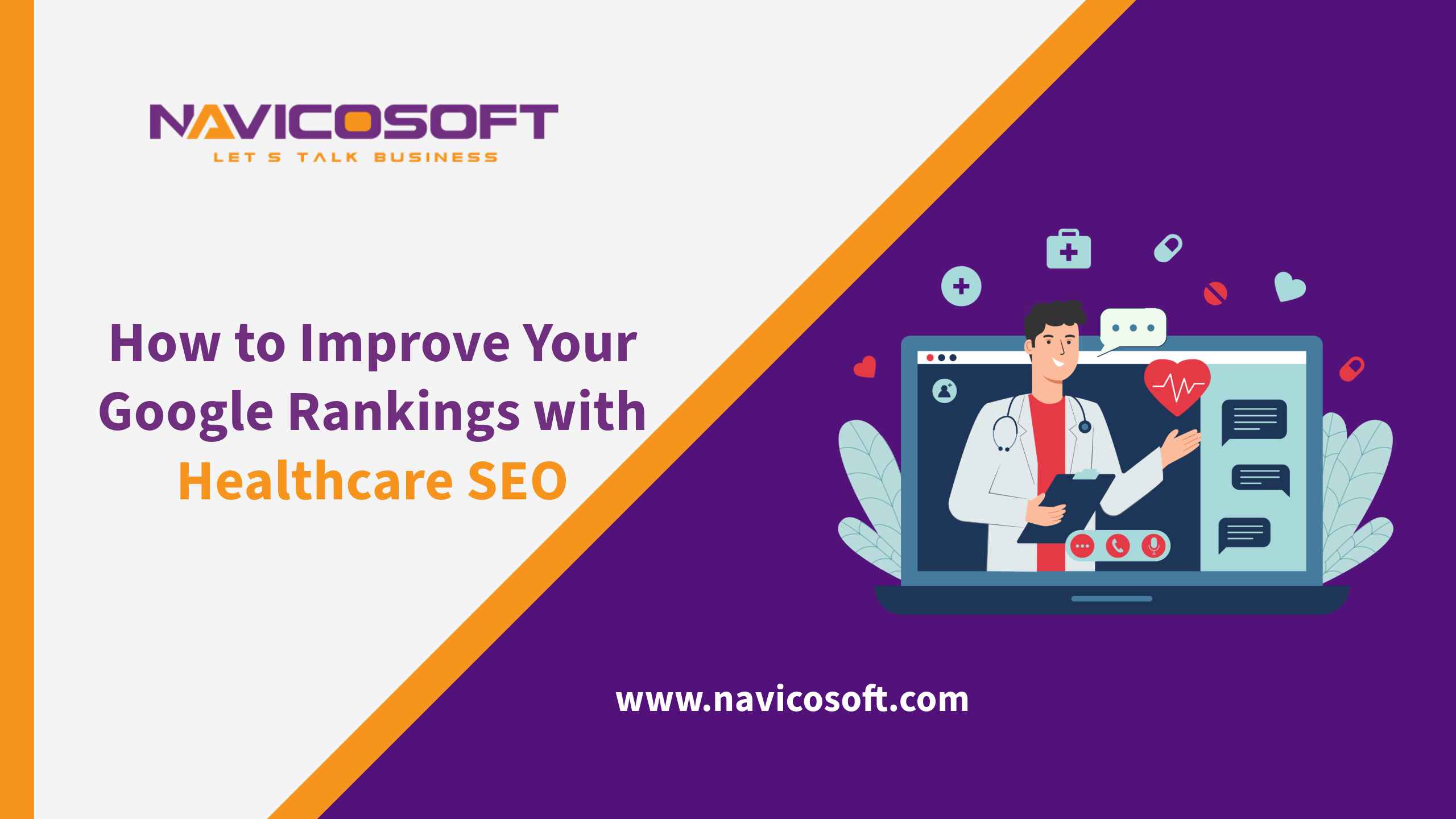Hosting services with real-time fast performance?

How to Improve Your Google Rankings with Healthcare SEO?
Having a website appear at the top of search result pages is essential for attracting the right traffic and generating genuine leads for your healthcare business. But how can you stand out? Your practice can be losing multiple appointments because patients cannot find you online. Search Engine Optimization for healthcare provides solutions to such issues. It helps businesses rank on the search engine pages to bring more patients to your website. This blog guides you completely on how you can help your Healthcare SEO rank your business on Google. Furthermore, you can get help from a reliable Healthcare Marketing Agency for SEO expert help and guidance.
What is Healthcare SEO?
Healthcare SEO is a strategic approach that helps healthcare businesses increase outreach and improve their website’s visibility on search engine pages. You can use different SEO methods to make the website easier for search engines to find, like keyword research, page optimization, building links, and creating great content. Furthermore, Healthcare SEO helps service providers promote services with reliability. By adding valuable content and targeted keywords healthcare services can get more patients and achieve their goals.
Importance of Healthcare SEO for Healthcare service providers:
SEO is crucial for healthcare providers because it greatly improves their online availability, helping potential patients find them more easily. Here are some other benefits:
Patient Acquisition
Many patients look for healthcare services online before making appointments. Good Healthcare marketing agency that provide SEO service can help bring these potential patients to your practice.
Establishing Authority
A well-optimized high authority ranking website can make your practice a trusted service provider in your field. High rankings on search engine pages can help build trust and increase conversion.
Local Search Optimization
Many patients search for healthcare services nearby. Good local SEO strategies will help them to see relevant searches on Google and find healthcare service providers on Google Maps based on their location.
Key Components of Healthcare SEO:
For better ranking and getting more potential patients, healthcare providers need to know some effective key components that help them achieve goals. Here are these:
On-Page Healthcare SEO Techniques:
1. Keyword Research
Understanding the words and phrases that your target audience is searching for is crucial to the organic ranking of your website. These keywords help to create an effective content writing service marketing strategy based on people searching for their medical issues. You can use SEO tools like Google Keyword Planner, SEMrush, or Ahrefs, which help you find targeted keywords. Furthermore, it is also necessary to focus on long keywords (like “best pediatrician in [your city]” along with short keywords (like “pediatrician,” “neurologist,” dentist”).
Best Practices for Keyword Research:
Think About the Patient Intent of searching those keywords: Know what users want. Are they looking for information, booking an appointment, or wanting a specific service?
Local Keywords: Use local keywords to attract patients near you.
2.Title Tags and Meta Descriptions
The page title you use must describe your page or blog. Add your target keywords in your title to help Google understand your content intent and increase online ranking and clicks. For example:
Title: “Top Pediatric Care in [City] | [Your Practice Name]”
Meta Description:
“Need a pediatrician in [City]? At [Your Practice Name], we provide great care for your kids. Book an appointment today!”
Header Tags: Use header tags like (H1, H2, and H3) to organize content in an effective way. Your H1 should reflect the main topic, and H2s and H3s can highlight subtopics. In that way, you need to improve readability as well.
Content Optimization: Create helpful and interesting content that meets patients’ needs, using important keywords in a natural way. Include a variety of articles, frequently asked questions and service descriptions.
Note: Don’t Over Optimize Keywords
Image Optimization: Images need clear file names and alt text with important keywords that you want to rank on Google. This helps you show up in image searches.
3. Off-Page SEO
It’s super important to help your site rank in search engines and supported by Google. Here are some effective off page SEO strategies to rank on google:
Build Quality Backlinks:
Backlinks are like high-fives from other websites. When respected healthcare sites link to your content, it means they think it’s good. Try to get links from reliable sources in healthcare.
Press Releases:
Have exciting news? Share it with press releases. They can catch the eye of media outlets and increase your website’s visibility.
Directory Listings:
Being listed in healthcare directories is like joining a special club. It increases your website authority and helps people find you more easily.
Guest Blogging:
Write quality posts for well-known healthcare blogs. This will help you reach more people and gain valuable backlinks.
4. Technical SEO
A good website is important for users to get information and rank in search engines. Pay attention to these technical parts:
Mobile Optimization:
Your website should be responsive and easy to navigate. As most people search on their phones, search engine pages prefer sites that are more mobile-friendly than others.
Page Speed:
Your website should load quickly without taking too much time. Use tools like Google PageSpeed Insights to check your site’s speed and get tips for improvement.
Secure Your Site:
It is important to have a secure and reliable website. SSL certificate is important for security, and it adds value to your website. You must have an SSL certificate, which shows “HTTPS” in the URL. Google prefers secure websites and ranks them in a better way.
5. Local SEO for Healthcare Off-site Techniques
Local SEO is important for healthcare providers to drive traffic from location-based searching.
Google My Business:
Make sure your business listing is listed on Google Business and improve it. Your details (address, phone number, website, hours) must be correct and updated.
Local Citations:
List your practice in local online directories like Yelp and Healthgrades. Keeping your listings consistent helps strengthen your local presence.
Patient Reviews:
Ask happy patients to leave good reviews on Google and other sites. Reply to all reviews, both good and bad, to connect with your audience.
Note: Local seo for healthcare is helpful if you are targeting only in nearby areas, it helps you get more patients within your budget.
6. Creating a responsive and optimized UX website
It is important to have a well-optimized website for your healthcare business. That site should be easy to navigate. Do you find valuable content for readers? Added that content to that site. Furthermore, the site has an HTML sitemap that helps to index your posts instantly. How quickly does the website load? Is the site secure and mobile-friendly?
If you have followed the above steps carefully, your site is well-optimized for a great user experience (UX), which comes from effective healthcare search engine optimization.
7. Analytics and Continuous Improvement
You can use effective analytics tools to check how your website is working. These tools are key for tracking where your traffic comes from and how users get involved and use your site based on your keyword rankings.
Check Your Performance:
Look at your website metrics often. Which keywords bring in traffic? Are users interested in your content ? Find areas that need improvement.
Keep It Fresh:
SEO isn’t a one-time task. Update your content regularly, add new info, and optimize for new keywords.
By focusing on these key points of Healthcare SEO, you can increase your online visibility and attract more patients to your practice.
Conclusion:
In conclusion, improving your Google rankings with Healthcare SEO requires a comprehensive approach that includes keyword research, on-page optimization, technical SEO, local SEO, on-page SEO and off-page SEO, and ongoing analysis. By applying these strategies specifically to the healthcare sector, you can grow your website’s visibility, get more patients, and position your practice as a reliable healthcare service provider in your area.













